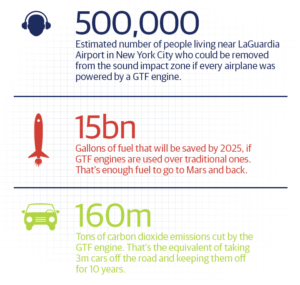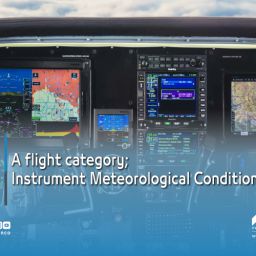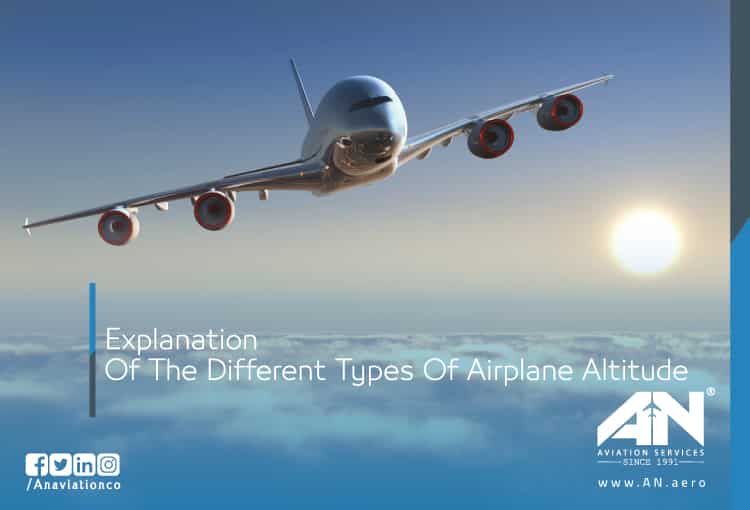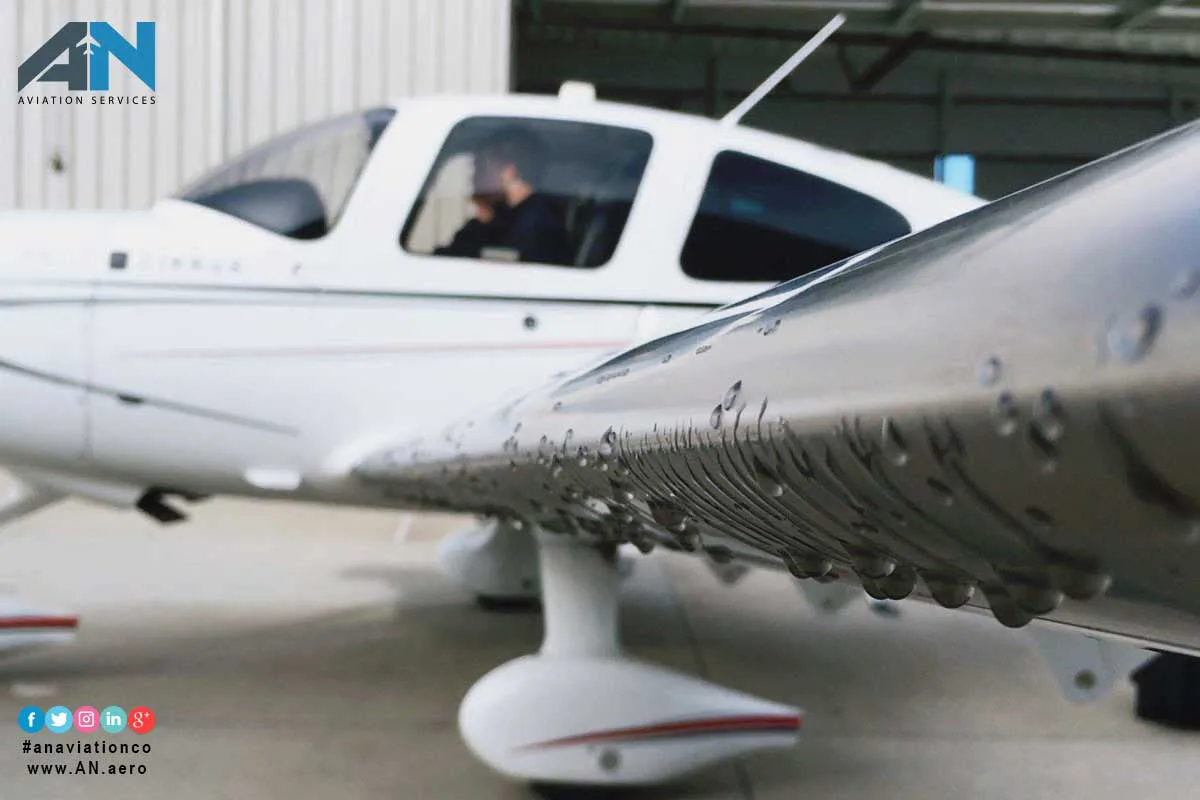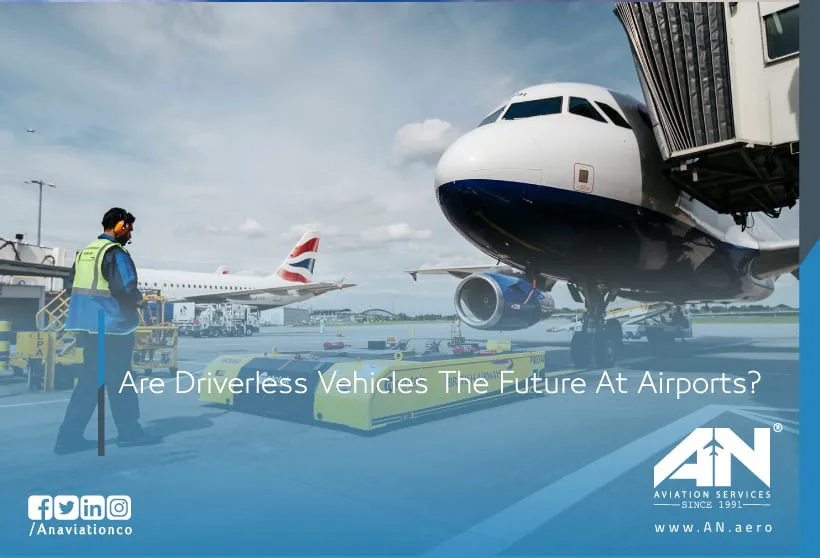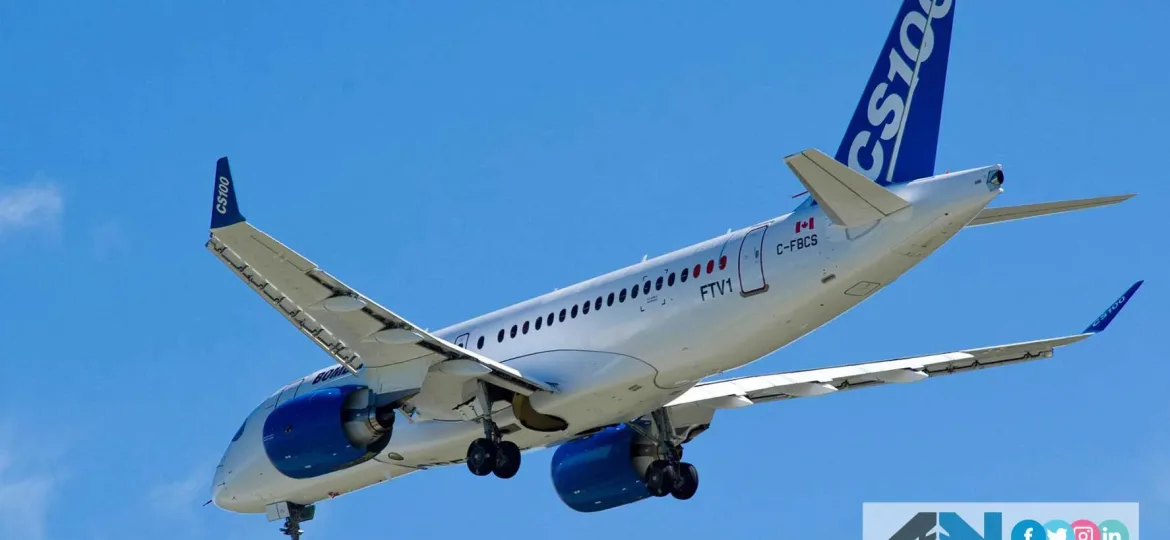
A QUIETER NEIGHBORHOOD IS JUST ONE BENEFIT OF AVIATION INNOVATION
If you live near an airport, you’ve probably thought about the noise generated by the aircraft arriving and departing every day. This noise could affect your quality of life and possibly your property value.
The planned expansion of London Heathrow, for example, may result in the value of surrounding real estate declining by 10% to 20%. For anyone who has witnessed a steady stream of jets taking off and landing overhead, it’s no mystery why.
The UK’s Civil Aviation Authority says “noise from Heathrow at a level classified as ‘significantly annoying’ impacts more people than any other airport in Europe.”
But annoying noise isn’t the only problem. Air pollution and its impact on human health, especially among children and the elderly, is another major concern.
The aircraft taking off and landing are continuously emitting exhaust, just like most cars do. And as the world’s middle-class populations continue to grow, the demand for air traffic is climbing.
Today, less than 18% of the world’s population has set foot on an airplane. However, over the next two decades, the number of passengers taking commercial flights will likely double.
The burning question of today: can this historic expansion of air travel happen in a way that doesn’t negatively impact the rest of us? Better yet, could that expansion actually improve our lives with quieter flights and higher property values?
The answer is yes – though it will take smart strategy, new technologies, and stronger collaboration to make it a reality. If things work out, sound levels around Heathrow could one day transform into this:

BETTER ENGINES = SUSTAINABLE TRAVEL
What’s the best way for airlines to reduce greenhouse gas emissions? Invest in new technologies that promise greater fuel efficiency, as well as those that bypass petroleum-based fuels entirely. That is the aviation future.
At Pratt & Whitney, a United Technologies Corporation (UTC) company, engineers have developed the PurePower® Geared Turbofan™ jet engine that consumes less fuel, operates using mixtures of alternative fuels, and significantly reduces airport community noise.
Compared with conventional jet engines, the new generation engines reduce fuel burn and CO2 rates by 16%, with even further CO2 reductions possible when that fuel is bio-based.
Noise reduction also goes hand in hand with keeping the industry sustainable as more planes fill the skies. That, too, has a big impact on regular folks.
Quieter aircraft lead to more tranquil neighborhoods, higher property values, and healthier lifestyles for those of us on the ground.
Alan Epstein, vice president of technology and environment at Pratt & Whitney, says geared turbofan engines are up to 50% quieter than conventional engines, which means that the engines impact about 500,000 fewer LaGuardia airport neighbors and 450,000 London Heathrow neighbors with noise from takeoff and landing.
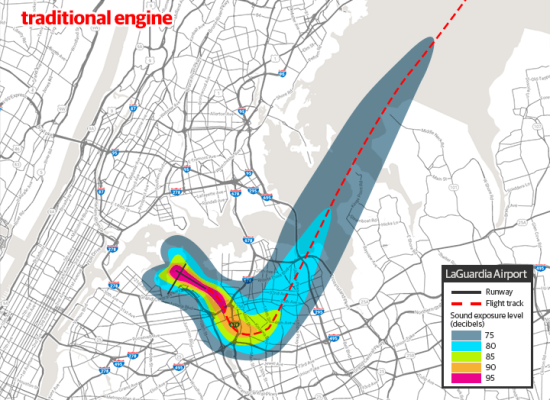
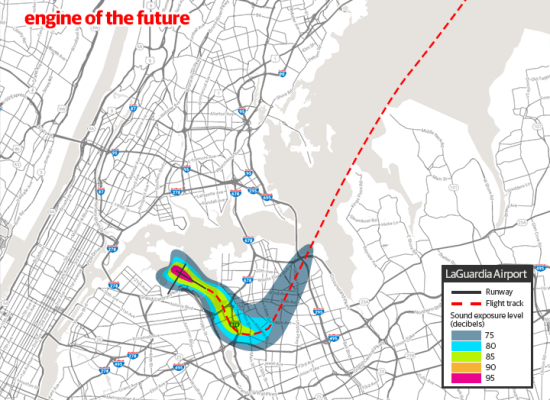
A CALL FOR COLLABORATION
Success over the long run will take more than airlines upgrading technology – the entire industry has to be in sync.
Last October, more than 2,000 delegates of the UN’s International Civil Aviation Organization (ICAO), representing 191 countries, reached an agreement to help ensure that the growth of civilian and cargo aviation doesn’t result in more carbon production between 2020 and 2050.
The ambitious ICAO agreement is initially voluntary. According to Michael Gill, executive director of the Air Transport Action Group (ATAG), 66 states have indicated they will take part, which represents 80% of all international aviation. The industry’s top two emitters, the US and China, are among the early adopters.
The industry of aviation future has many moving parts, and streamlining operations and infrastructure can play a big role in fulfilling the aspirations of the ICAO.
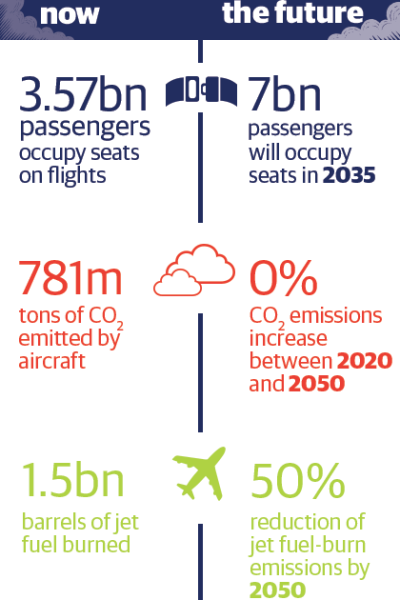
“BENEFITS FOR EVERYBODY”
While the ICAO agreement is voluntary at the outset, will it be enough to inspire widespread changes overtime to keep the plan on track?
Nancy Young, vice president of environmental affairs at Airlines for America, argues that the economic benefit of greater fuel efficiency is more than enough to push airlines to lead the charge.
Epstein agrees. “CO2 means fuel, and fuel is everything [in terms of cost],” he says. “Reducing emissions creates social and economic benefits for everybody.”
As consumers become aware of these changes, they may decide to vote with their wallets, supporting airlines that demonstrate clear commitments to building a sustainable aviation future.
And as for those declining property values near Heathrow, the promise of quieter aircraft should be music to homeowners’ ears.
I am text block. Click edit button to change this text. Lorem ipsum dolor sit amet, consectetur adipiscing elit. Ut elit tellus, luctus nec ullamcorper mattis, pulvinar dapibus leo.
